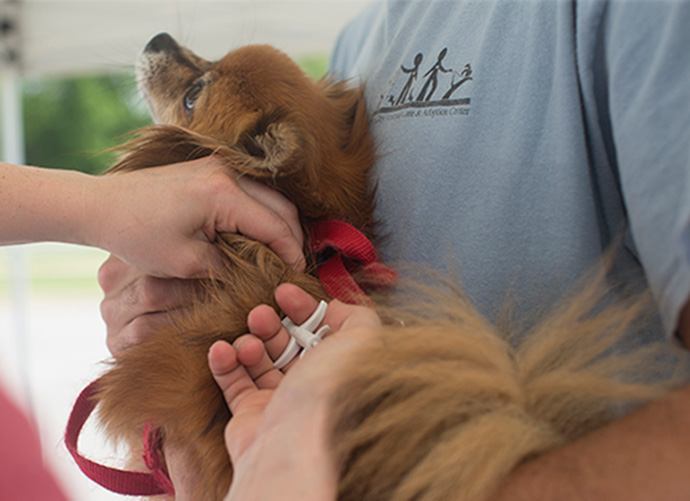By Natalie Betz
Humans aren’t the only ones who need to find safety in case of emergencies, so the Iowa City Animal Care & Adoption Center created a team of dedicated volunteers to assist animals during disasters.
“Our mission is to ensure animals throughout the city are protected,” said Liz Ford, the animal-services supervisor at the center.Ford said volunteers are not only expected to help respond to animal emergencies but also to help educate the public, specifically pet owners, on how to prepare a plan for themselves and their pets when disaster strikes.
Organizations and clubs asked the shelter to present a plan for pet-disaster preparedness, Ford said. She noted that approximately 75 percent of people have pets, so plans have to be made for them in case of disaster.
“The response team’s responsibilities range from big things affecting the community as a whole, such as the 2008 flood, to small events regarding individuals,” said Sara Bright, an animal-shelter dog-training coordinator.
On a smaller scale, the team would help find homes for hoarded cats or dogs, relocate ducks if they are found on busy streets, or even find a home for a pet hog that was snuck into a college dorm room, Bright said.
Bright said that during the 2008 flood, they had to relocate animals in the shelter as well as rescue animals in evacuated homes.
“You don’t know when the response team will be needed, and they will be trained, which will be very helpful, since they will know exactly what’s expected of them,” said Lisa Bragg, the shelter program director. “During Hurricane Katrina, many people wanted to volunteer, but they didn’t know exactly how to help, because they had no experience.”
In order to be a member of the animal-response team, the person must have previous experience volunteering at the shelter, Ford said. The person must then pass a background check, attend an orientation, take an online Federal Emergency Management Agency online course as well as take a hands-on training class with dogs and cats on April 8, Bragg said.
This year, there were 60 seats available for volunteers, and it filled up quickly, Bragg said.
“It’s important to have a larger group of people together when something comes up,” Bright said.







